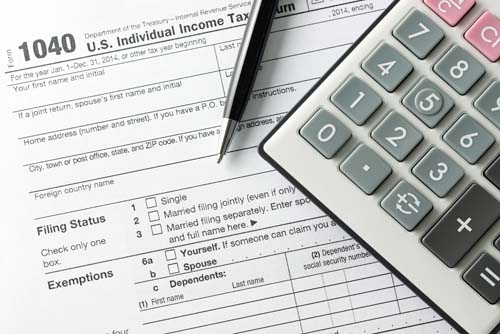Tax Tips for Freelancers
6 Tax Tips Every Freelancer Needs to Know

Seasoned freelancers likely know the drill when tax time rolls around. Newcomers, on the other hand, may be faced with an eye-opening experience.
Whether you freelance full time or as a side gig, the Internal Revenue Service and state and local tax authorities require you to report your income and pay taxes, but you can also deduct many expenses. Putting this all together can seem daunting, so these six tips will help you get started::
1. Solid record-keeping saves time.
Too often, people wait until the last minute to gather and organize their tax information. This time-consuming task is avoidable with ongoing, year-round record-keeping. Whether you use spreadsheets or one of the many cloud-based (and, often free) accounting systems out there, keep everything organized. Recording income and expenses as you go means you’ll simply have to print out a few reports at the end of the year.
2. File the right return.
Are you an individual sole proprietor or an incorporated business? This determines the type of return you will file. Individuals use Form 1040, along with a Schedule C to report profit or loss from a business. Full details are available in IRS Pub. 334. If you’ve incorporated your business, you need Form 1065 for a Limited Liability Partnerships, Form 1120 for C-corps or Form 1120S for S-corps. Along with these federal forms, you may also need to file state and local returns.
3. Report all income.
If you make $600 or more from a single client during the year, you will receive a Form 1099-MISC. There is a common misconception that income is not taxable if a 1099 is not received or you make under $600. However, freelancers must report all income, and it is all fully taxable.
4. Understand the self-employment tax.
Net earnings of $400 or more require payment of the self-employment tax, which represents the Social Security and Medicare taxes automatically withheld from typical employees’ paychecks. The self-employment tax is 15.3 percent for 2016 and it is paid in addition to income tax.
5. Track business expenses.
Freelancers can deduct necessary business expenses. This can include office expenses, telephone, internet, postage and more. However, rules apply. One is that only the business portion of the expenses can be deducted. A full list of common business expenses is available in IRS Pub. 535. Business meals, travel and entertainment are deductible at a 50% rate. Business mileage is a common expense. The 2016 standard mileage reimbursement rate was 54 cents per mile (it is 53.5 cents for 2017). Some freelancers may be eligible for a home office deduction, but many limitations apply so it’s best to check with a tax professional.
6. Check with a tax professional.
Taxes, especially for freelancers, can be a complex issue that encompasses federal, state, and sometimes local returns. Use these tips to get started, but it’s always best to seek advice from an experienced tax professional. He or she can examine your individual situation and provide accurate advice as it applies to your area.



